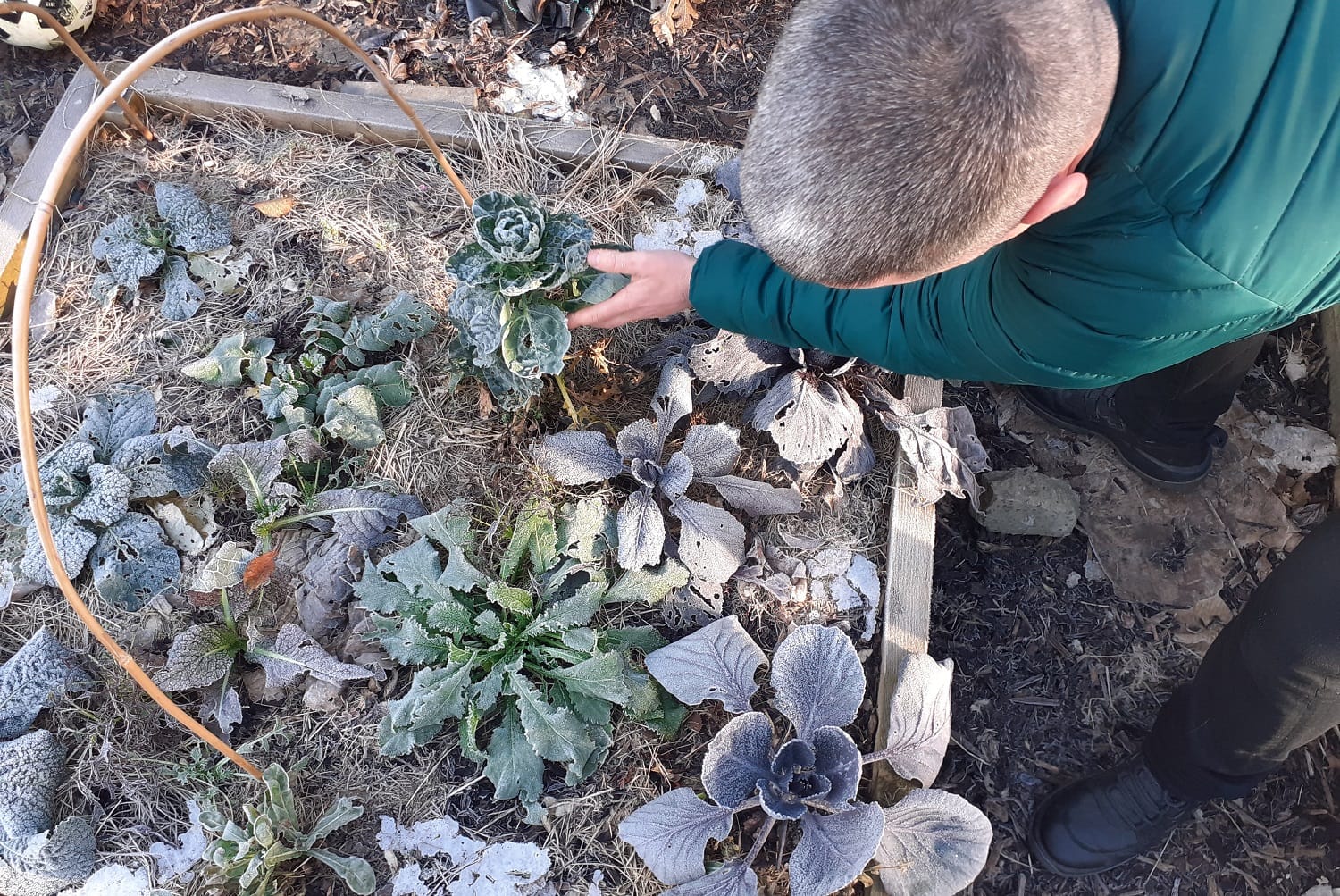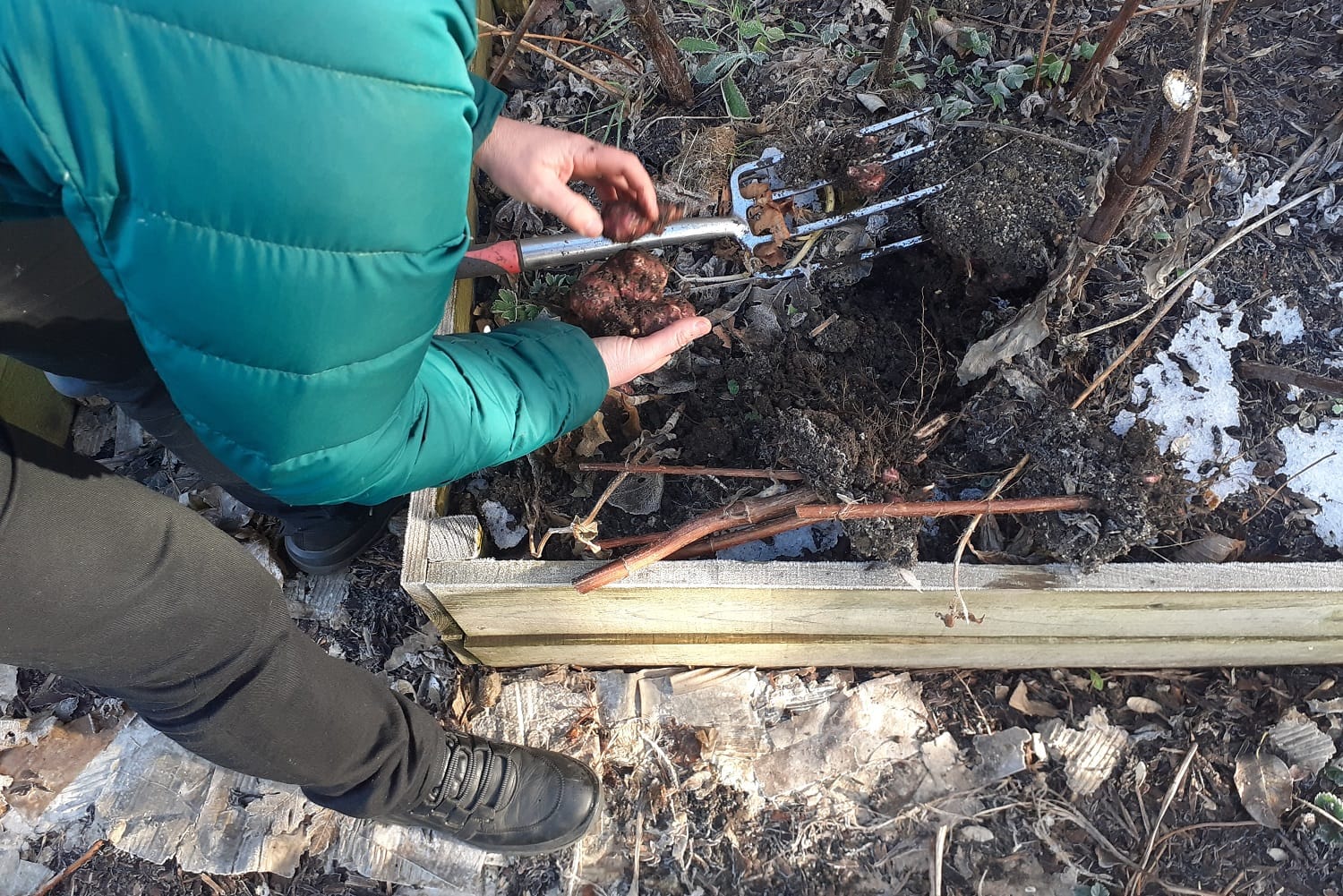What’s the best way to tell area residents about plans for a new asylum shelter nearby?
The government should tell communities directly about plans for new asylum shelters, some activists and politicians say.
The aim is to sow the seeds of friendship – and artichokes (or whatever else they want to grow).

Scott Bryan cuts the soil in the raised beds with a garden fork and fishes out muddy stems of Jerusalem artichoke that poke up at all angles like porcupine quills.
In his Cabra garden, the grow beds are planted with broccoli, kale, broad beans, raspberries, Brussels sprouts and cabbage. The leaves are covered in frost.
Gardening is really powerful, says Bryan. “The gym, your food, your mental health. You’re addressing an awful lot of things in one activity.”
But not everybody who wants to garden has a space to do it, he says. Hence his new project, Space to Grow, for those in Dublin 7 who have gardens to share, and those yearning for a plot to dig and grow.
He has dreamt up a future where there would be a row of allotments along the street’s front gardens.
“Can you imagine there’d be a few neighbours at the front together, side by side, one in this house, and this house, and this house?” he says, sitting up in the chair in his sitting room.
Space to Grow would offer to install a two-by-two metre timber raised bed in the garden of each person willing to share their garden, which a person without a garden could then cultivate. Or, they could plant it together.
Bryan says he hopes that the project could connect people with solutions to climate change, and that it might boost friendships between people of different ages.
Like a befriending service, he says. “The grower has a reason to go back, beyond just visiting and checking in on the older person. They have food to tend to.”
The Space to Grow website is currently taking sign-ups, says Bryan.
Bryan and volunteers plan to pair garden owners with growers in February. “Then we’ll meet together for a cup of tea, get a sense of each other and how they feel it will work.”
They will then wait a minute, a fallow period, for the pair to think about it and what kind of arrangement would work for both, he says.
Seeing how frequently the grower would like to pop around, whether the garden owner would like to help with the growing, whether there’s room for expansion. More space in the garden, for example, in return for cutting the grass?
It’s flexible, he says. “How people will arrange it is really up to them. But we’ll support them and we will offer guidance and keep an eye that you know how everything’s going okay.”
Space to Grow – which has funding from Connecting Cabra, a local transport group, and the Community Foundation – would provide the raised bed, compost, a grow kit and an online course on gardening, he says.

He’s working with the Cabra Men’s Shed to see if they will make the timber beds, he says. “Keep it in the community and help finance the great work that they’re doing.”
Since launch last Wednesday, Bryan has had eight messages from budding growers, he says. “They’ve no space, and they’ve wanted to grow food.”
Waiting lists for council allotments are notoriously long. Dublin City Council didn’t respond to queries asking how many are on them at the moment.
Bryan says there won’t be enough room to grow loads of food through Space to Grow. But that’s not really the point. It’s also an opportunity to connect with someone else, through the medium of gardening, he says.
“There’s huge reward and huge joy, when you pull a potato or something out of the ground and you cook it for yourself, and you share in a harvest with someone else,” he says.
Bryan plans to reach out to those with gardens through notices in the community centre, local church newsletters, and through Friends of the Elderly, a befriending service for older people.
Initiatives such as these can have a massive impact on people in older age, says
Deborah Costello, fundraising and communications manager for Friends of the Elderly.
Friends of the Elderly members have said that attending befriending events saved their lives, says Costello. “They were lonely and isolated,” she says, but then made new relationships.
Organising initiatives like this can sow the seeds of friendship, says Costello. “There can be friendships regardless of age and I think that’s what will happen.”
Bryan says that the scheme isn’t just for people living alone or who are lonely. “It could be anyone with a garden, meeting someone without a garden.”
But he thought one strand with impact could be as a befriending service for older people, he says. Friends of the Elderly will be running through safety protocols too.
Dublin 7 is densely populated and space deprived, Bryan says. And space is divided unequally.
Gardens in Cabra can be large or long, he says. “A lot of houses, as I understand it, in Dublin, were built with long gardens so that part of it would be available for people to grow food.”
Bryan says he feels that some solutions to big, complex problems, like climate change, food security, and mental health, can be small and local. Like this one.
“If people can kind of connect with something that’s smaller and manageable, then you feel like you’re actually making a positive impact,” he says, glancing over his shoulder at his frostbitten garden.
“It’s intimately connected, growing your own food and addressing that massive problem,” he says.

Get our latest headlines in one of them, and recommendations for things to do in Dublin in the other.